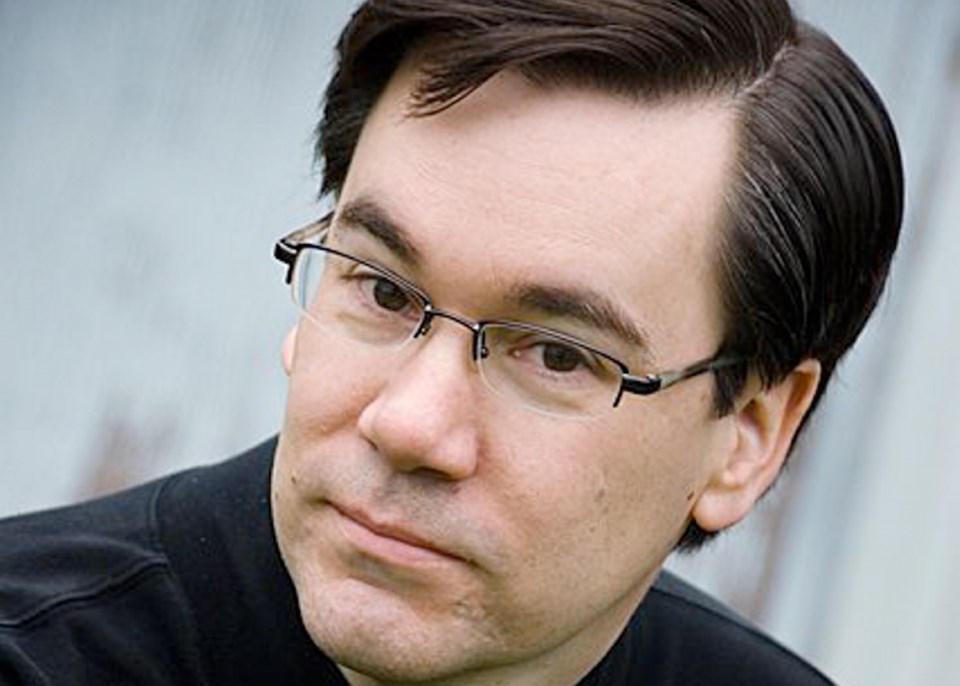What: Pacific Baroque Series: Hail! bright Cecilia
When/where: Saturday, Aug. 10, 7:30 p.m., Christ Church Cathedral; pre-concert talk 6:45
Tickets: $40. Call 1-855-842-7575; online at ; in person at Ticket Rocket (1050 Meares St.), the cathedral office (930 Burdett Ave.), Ivy’s Bookshop and Munro’s Books
In 17th- and 18th-century England, an “ode” was a cantata-like vocal-instrumental work that paid homage to a specific person. That person was usually a monarch, though odes were also often performed in honour of St. Cecilia, the traditional patroness of music, especially on her feast day, Nov. 22.
Cecilia, a third-century Roman martyr, was one of the most discussed saints of the early Christian church, yet has always been a mysterious figure.
The evidence for her association with music, indeed for her very existence, is slender. (The first documented music festival in her honour was in 1570, in Normandy.)
St. Cecilia’s Day was celebrated annually in late-17th-century London, and Henry Purcell (1659-95), the Shakespeare of English music, wrote several works in her honour, including two odes: Welcome to all the pleasures (1683) and Hail! bright Cecilia (1692). The latter, which runs about 50 minutes — three times as long as the former — was Purcell’s grandest Cecilian work, and had a fine literary pedigree. The text reworks John Dryden’s poem A Song for St. Cecilia’s Day (which Handel would later set).
On Saturday, Hail! bright Cecilia will be the culmination of the season-opening program of the Pacific Baroque Series, a year-round venture, launched last July, that is a collaboration between Early Music Vancouver, the Pacific Baroque Festival and Christ Church Cathedral.
The concert will feature more than 20 members of the Vancouver-based Pacific Baroque Orchestra (many of whose members live here), with instruments including recorders, oboes, bassoon, trumpets, timpani, strings, lute and organ.
They will be led by the orchestra’s music director, Alexander Weimann, an early-music specialist internationally renowned as both keyboard player and conductor.
The 12 vocal movements that follow Purcell’s opening “symphony” feature intimate solos, duets and trios as well as massive choruses of the kind most familiar to us through Handel’s oratorios (Handel was much influenced by Purcell).
Saturday’s performance, however, will not have a chorus in the conventional modern sense of that word — i.e., a large body of singers separate from the vocal soloists.
For Baroque musicians, generally, “chorus” meant merely the number of singers required to sing a piece, and in practice could mean just one voice per part.
On Saturday, most of the music will be sung by six soloists, with two additional singers (“ripienists”) reinforcing the grander passages. There will never be more than two singers per part.
(Weimann took a similar approach even in Bach’s monumental B-minor Mass, when he conducted it here in August 2016.)
The soloists are all highly respected in the early-music field: Montreal-based soprano Suzie LeBlanc (who was appointed to the Order of sa���ʴ�ý in 2014) and German soprano Dorothee Mields, both of them familiar to Victoria; an American, baritone Sumner Thompson; and three English singers — countertenor Alex Potter (who lives in Germany), “high tenor” Samuel Boden and baritone Matthew Brook. The ripienists, countertenor Nicholas Burns and tenor Jonathan Quick, are both from Vancouver.
The first half of Saturday’s program will feature two other major English Baroque composers: Matthew Locke (ca. 1621-77) and John Blow (ca. 1649-1708). Both were friends of Purcell’s, major influences on his music (Blow was one of his teachers) and friendly rivals. Purcell actually succeeded Locke as an official court composer, and later succeeded Blow as organist at Westminster Abbey. (In 1696, Blow published a song under the title An Ode, on the Death of Mr. Henry Purcell.)
Weimann will lead excerpts from the music Locke contributed to The Tempest, a “semi-opera” after Shakespeare first mounted in 1674.
A semi-opera was a play with episodes including songs, dances, instrumental music and scenic spectacle.
Locke and two colleagues invented the genre, which was intended to rival Italian and French theatrical genres in a form better suited to English tastes, and which made a major contribution to musical life in Restoration England.
The Tempest was the first semi-opera to become a hit, though Purcell would make the greatest contributions to the genre, in the 1690s.
Saturday’s program also includes Blow’s Welcome, ev’ry Guest, a short ode to music (also after Dryden), published as the opening number of his miscellany Amphion Anglicus, in 1700.



